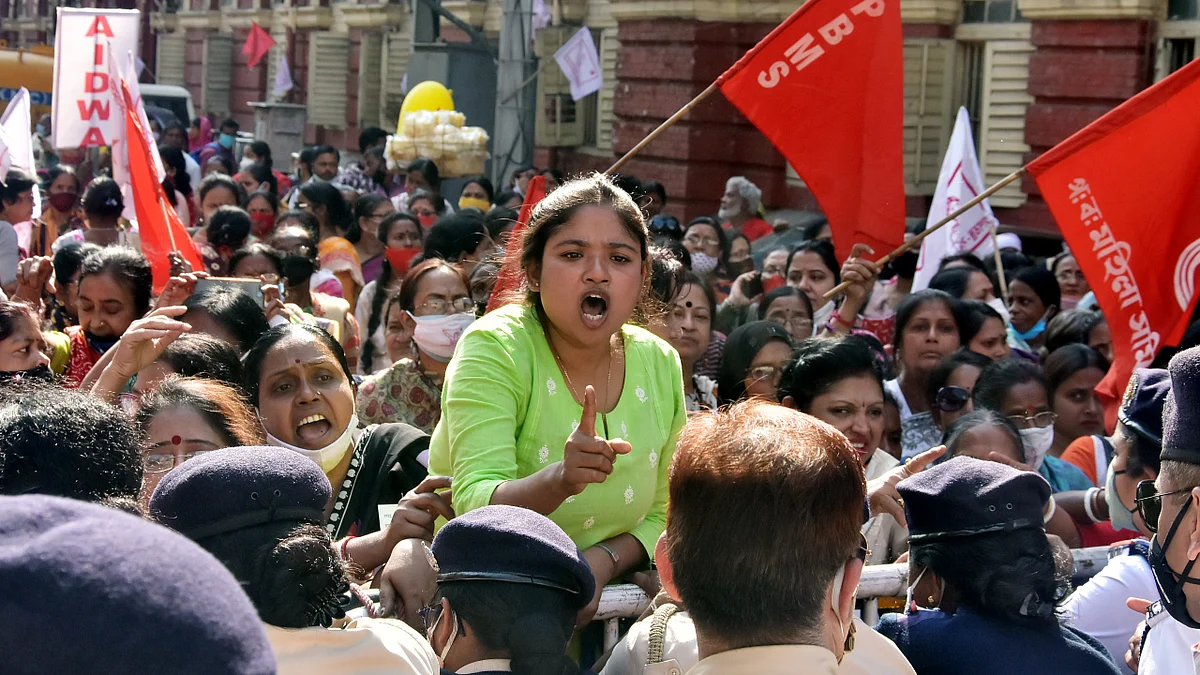Mohammed Zubair, cofounder of fact-checking site AltNews, is in the cross-hairs of a number of offended people. There are cases filed against him for offending Hindu sentiments, allegedly because of a series of tweets from him on the ‘Dharam Sansad’, where he referred to some people in saffron robes as hate-mongers. This was the 'Dharam Sansad' where these people threatened to ‘shoot 6 bullets into the chest’ of a former PM; threatened a war on the Indian state if the demand for a ‘Hindu Rashtra’ was not granted; called for the armed forces and police to join in ethnic cleansing. Zubai’s description of them as hate-mongers – rather than the actual calls for violence, overthrow of the Indian state, and genocide – upset some people. The ASG of Uttar Pradesh claimed that the men who made these statements were considered ‘holy’ by some, and that their sentiments were offended. Zubair is in judicial custody, and being flown across the country by the Delhi police at taxpayer expense, as cases against him mount.
Then there is Nupur Sharma, in the cross-hairs of outraged Islamists who are offended because she made remarks about the Prophet that many found objectionable. And she too, is facing the wrath of the offended in multiple cases across the country. Not only is she facing charges for the same offence in multiple jurisdictions, but the Supreme Court also strongly admonished her for having caused offence and sermonised on her behaviour. In the meanwhile two men, who did nothing more than put up social media posts supporting her, have been killed publicly by outraged people in separate cases. The cost of offending someone should be neither imprisonment nor death. And yet, in modern India it seems to be both.
While the Nupur Sharma and Mohammad Zubair cases are causes célèbres for their respective sides as proof that the ‘other’ ecosystem holds sway, the fact remains they are the same case, and arise out of our pandering to offended sentiments – religious or otherwise. To give you another example, in Maharashtra, actor Ketaki Chitale, and a 21-year-old student, spent time behind bars, as the police investigated the offence caused by their posts to supporters of the NCP and Sharad Pawar.
India does not have a section to deal with hate speech. Nor do we have one dealing with blasphemy. While the jury is open on whether there ought to be laws on hate speech; the general consensus is that India should stay away from blasphemy laws. In a nation with such diversity of religion – between religions, and even within a religion – and where a large part of the population believes in what it believes without worrying about evidence, blasphemy laws will just be used to gag people and stop social reforms.
While we may not have laws against hate speech, or blasphemy laws, what we have is something far more potent – the Indian Penal Code, a relic of the monolithic British Raj which had no idea how to deal with so much diversity. Drafted by Macaulay and his team of colonialists, it had an entire chapter of laws that related to religious offences. Foreigners who neither understood diversity of faith, or the innate Indic tradition of questioning it, drafted a law that we carry into the 21st century.
Today, Section 295A of the Indian Penal Code is being weaponised to trample on rights and ensure that the process becomes the punishment. The section is applied to “deliberate and malicious acts, intended to outrage religious feelings of any class by insulting its religion or religious beliefs”. All you require is one person, somewhere in the country, offended by what you have said, to file a FIR. And then the process takes over. If there is an FIR, the police are bound to investigate. When the police investigate your privacy is going to be invaded, no matter how mindful the cops are. It is the nature of the work.
The problem is that this is not just about Zubair and Sharma. It is about the law being weaponised to settle scores. Be it someone playing loud music, making a movie, putting up a poster, creating an advertisement, wrapping food in a newspaper – all of it comes under the scanner of the politically motivated, who use section 295 a to rise up the ranks of those who outrage.
Maybe the solution for this is to investigate those who are outraged, rather than those causing the outrage. Find out why, when millions of us are able to go about our days without being offended or reacting to utterances, some individuals are getting triggered by statements. Maybe a police investigation into their intentions, and an income-tax investigation into their funding, and a psychological investigation into what triggers them, will help us find a way out of this downward spiral that is eroding our freedoms.
The writer works at the intersection of digital content, technology, and audiences. She is a writer, columnist, visiting faculty, and filmmaker. She tweets at @calamur










